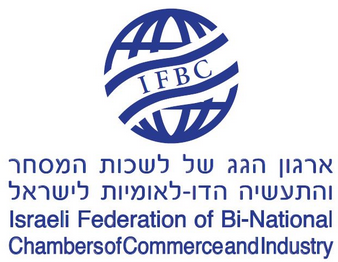Credit: Dan Catarivas
Climate change and global warming has become a reality happening much faster than all predicted scenarios and are recognized as an all-encompassing threat to the global economy and humanity. Unprecedented and drastic actions are required to win against the impending climate crisis.
A major component of the response is the implementation of innovative climate technologies. Many of these technologies are still in their early stage of development, and far from deployment.
The Israeli Climate Tech industry was born in the 1950s and 60s, in a young nation with minimal freshwater resources, a desert climate and few natural energy resources. Israel confronted these challenges with innovations that include water-saving drip irrigation, precision agriculture, greenhouses and solar-powered water heaters. A World Bank Policy Research Working Paper noted: “Israeli farmers have consequently been able to shape their agricultural system to the climate of their country and take advantage of heat rather than be a victim of it.”
It’s that Israeli spirit of innovation – the ability to adapt and thrive in adverse circumstances – which the world needs for climate change management.
Israeli climate tech includes companies that engage in technologies that reduce greenhouse gas emissions or work to mitigate global warming and adapt to climate changes. In terms of the overall high-tech ecosystem in Israel, climate tech is grabbing more of the market share with one out of every seven start-ups being from the climate-tech field – an increase from 9 per cent to 25 per cent in one year. In the first half of 2022, 15 per cent of total high-tech investments went to climate tech (nearly $1.5 billion), a 50 per cent increase over the previous year.
There is no question that the impact and the operation of climate tech companies cannot and should not be limited by political borders.
Climate change is a cross border problem that requires cooperation of all countries worldwide with an emphasis on collaboration between neighbouring countries.
International cooperation is necessary in order to confront climate change. In the case of Israel, which for many years was, as one of our prime minister’s said, “a villa in the jungle” i.e. a kind of island with limited ties with its immediate neighbours. It is a an especially challenging task.
But since the signing of the Abraham Accords, Israel is now becoming an integrated part of the region. Not an isolated “villa” anymore but an “apartment in a condominium” with the possibility of cooperating and collaborating with its neighbouring countries on the common challenges of climate change.
A meeting, at the UN’s COP27 climate conference in the Egyptian resort of Sharm el-Sheikh, brought together for the first time ever politicians from Israel, Egypt, Lebanon, Jordan, Cyprus, Saudi Arabia, Oman, Bahrain, Qatar, the Emirates, Iraq, Kuwait and the Palestinian Authority. The meeting was called by the presidents of Egypt and Cyprus and was attended not only by politicians but also by a large number of Arab and international officials.
It was Israel’s environmental protection minister who attended this regional meeting at the global climate conference where the group pledged to work together to tackle climate change. This is indeed a very good sign of possible future regional cooperation where Israel can play a major productive role.

Israel should establish broader collaboration in innovating green technologies and use this as a diplomatic channel to promote stability and security in the region. In this context, the EastMed Gas Forum is a platform for multilateral dialogue and engagement where Israel could play this role. Egypt’s improved collaboration is already part of this effort. Jordan, the PA, and Israel should strengthen their collaboration, developing innovative solutions that benefit all the actors, as could an electricity-water-energy triangular nexus.
Beside the regional dimension which is a kind of “new frontier” for Israeli companies, the EU green deal program launched two years ago is an excellent occasion for Israel’s innovative drive and the EU, which are natural partners, to join efforts to transform their markets into modern, resource-efficient and competitive economies.
“A closer collaboration with Europe can also help Israel improve its climate governance and strengthen green finance and the renewable sector. We must see it as really a unique opportunity to jointly shape a common future based on the shared EU-Israeli environmental values,” agreed Dimiter Tzantchev, EU Ambassador-designate to Israel of the European Union, and Ambassador Gideon Behar, Israel’s special envoy for climate change and sustainability at the Foreign Ministry. Cooperation with North America, Latin America, Africa and Asia is also on the table.
As the president of “Israeli federation of Bi-National Chambers of Commerce and Industry, I am confident that the 48 Bi-National Chambers In Israel can and will play a positive role in enhancing deepening and strengthening cooperation between Israeli climate tech companies and potential international partners .
Cooperation between climate tech companies all around the world is essential in order to successfully overcome the challenges of global warming and climate change. Israeli know-how and innovative solutions should be made available worldwide to try successfully to combat, slow down and eventually overcome the threats of global warming.
Box: The Israeli Federation of Bi-National Chambers of Commerce and Industry:
- The federation represent 48 BI-National Chambers
- Working with the Government on legislation and procedures to open trade connection between Israel and the world
- Join forces with the parallel foreign trade organizations, in order to provide the chambers with the information and tools to operate better.
- Assist the Government with the trade and diplomatic delegations.
For more information: www.bi-national.org
Dan Catarivas is the President of Israeli Federation of Bi-National Chambers of Commerce and Industry

Dan Catarivas



